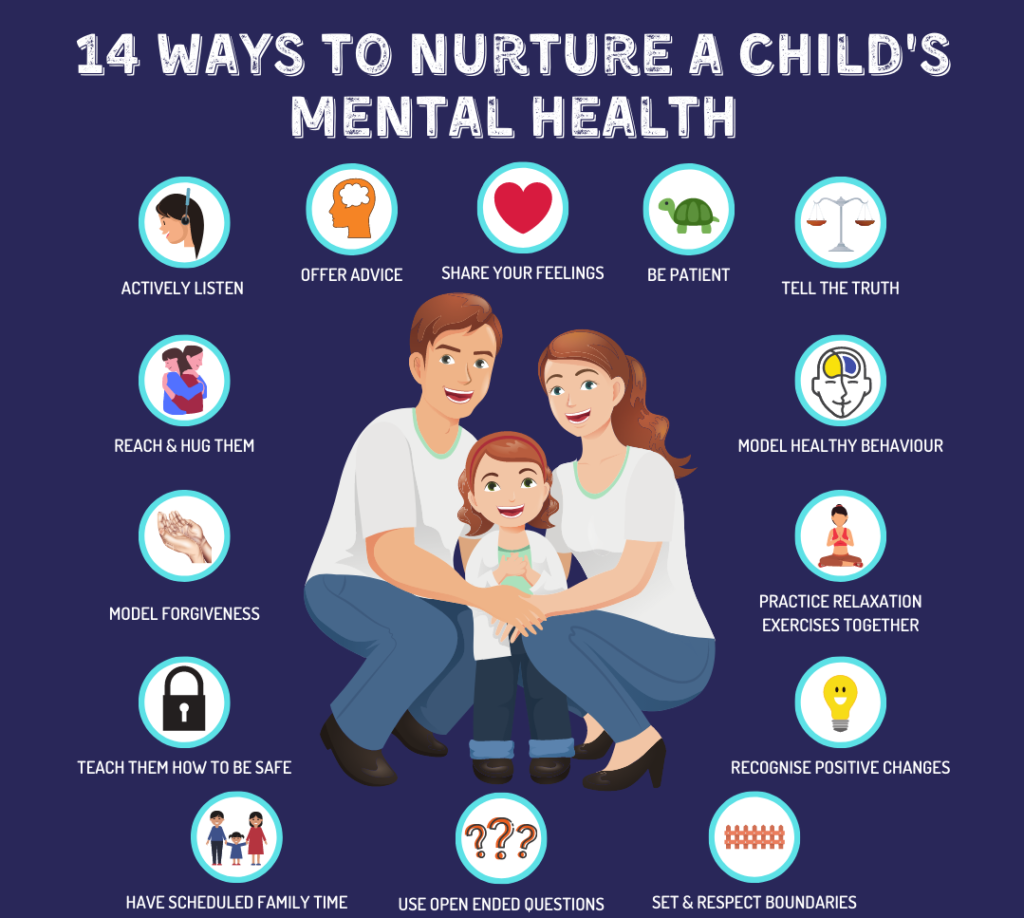Child mental health refers to the emotional, psychological, and social well-being of children and adolescents. It encompasses their ability to handle emotions, form relationships, cope with challenges, and navigate the demands of daily life. Just like physical health, mental health is crucial for overall well-being and development in children.

Here are some key points to understand about child mental health:
Importance of Early Mental Health
Early childhood is a critical period for mental health development. Positive mental health in early years lays the foundation for later well-being, learning, and resilience.
Common Mental Health Issues
Children can experience a range of mental health challenges, including anxiety disorders, depression, attention-deficit/hyperactivity disorder (ADHD), conduct disorders, eating disorders, and autism spectrum disorders. It’s important to note that these conditions can vary in severity and presentation.
Causes of Mental Health Issues
Mental health problems in children can have multiple causes, including genetic factors, brain chemistry, environmental influences (such as family dynamics, trauma, abuse, or neglect), biological factors, and individual temperament.
Warning Signs
Recognizing early signs of mental health issues in children is crucial for early intervention. Warning signs may include persistent sadness, irritability, changes in appetite or sleep patterns, difficulty concentrating, social withdrawal, excessive worry, frequent physical complaints, aggression, and self-harm behaviours.
Importance of Supportive Environment
A nurturing and supportive environment plays a vital role in promoting positive mental health in children. This includes healthy family relationships, safe and stimulating living conditions, access to education, social support, and opportunities for play and recreation.
Role of Parents and Caregivers
Parents and caregivers play a significant role in promoting child mental health. They can create a secure and supportive environment that fosters positive mental well-being by providing love, acceptance, consistent discipline, and open communication.
Access to Mental Health Services
Accessible and appropriate mental health services are essential for children who require professional support. Depending on the child’s needs, this may include therapy, counselling, medication management, and specialized interventions.
Prevention and Promotion
Preventive efforts are crucial in promoting child mental health. These can include mental health education in schools, building resilience skills, promoting healthy lifestyles, and fostering emotional intelligence and social skills.
Conclusion
If you have concerns about a child’s mental health, it is important to consult with a qualified healthcare professional, such as a paediatrician, child psychologist, or mental health specialist. They can assess the child’s needs and provide appropriate guidance, support, and interventions.

